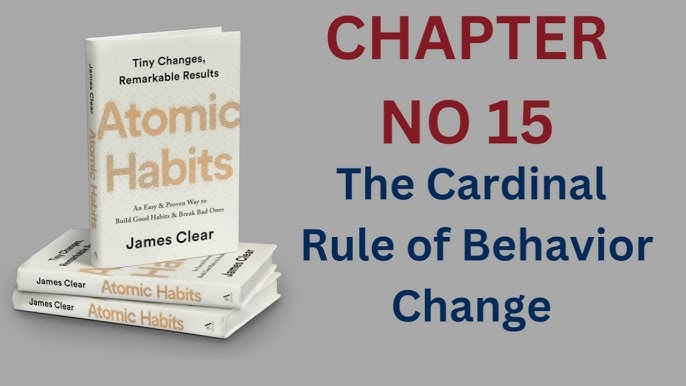The Tale of Ali Baba and the Forty
Thieves
Part 3
Catagory:Fiction
Author:BY POWYS MATHERS(The Book of the Thousand Nights and One Night)
Posted Date:04/02/2025
Posted By:utopia online
Use, as if she had caught him doing something to a little boy. Without giving him time to recover from this storm, she thrust the dinar under his nose, crying: ‘You see it, you see it? It is a cast off from your wretched brother’s house, a thing thrown away! Fool, fool, you go about rubbing your stomach and congratulating yourself that you have a shop, while your brother only has three asses! You deceive yourself! That hollow-bellied woodcutter, that nothing, has not time to count his gold; he measures it! By Allah, he measures it as a grain-seller measures
grain!’ In a tempest of vociferation she told her husband of her trick and its astonishing result. ‘The thing cannot rest here,’ she screamed. ‘You must go immediately and force that vile hypocrite to reveal the source of his treasure.
I tell you he measures it, he throws it about in cartloads!’ Kasim was quite convinced by his wife’s words that Ali Baba had in some way found a fortune, but, instead of being happy to know that his brother would now be for ever beyond the reach of poverty, he was stricken by a bilious jealousy and felt his gall bladder swelling from spite. Therefore he rose, as soon as he recovered his breath, and ran to his brother’s house to see what might be seen. At this point Shahrazad saw the approach of morning and discreetly fell silent. But when the eight-hundred-and-fifty-fourth night had come SHE SAID: He found Ali Baba with the pickaxe still in his hand, and addressed him thus angrily, without civility or greeting: ‘How is it, O father of
asses, that you dare to be reserved and secretive with us? That you go on pretending to be poor and humble, when you measure gold by the bushel in your lousy dwelling?’Ali Baba was troubled by these words, not because he was avaricious but because he knew the evil greed of Kasim and his wife. Therefore he answered: ‘By Allah, I do not know what you would say. If you will only explain, I will answer you frankly and in good faith, although for TALE
all these years you have forgotten the tie of blood which is between us and have turned your face away from me and mine.’ ‘All that is beside the point, Ali Baba,’ cried the imperious Kasim. ‘It is no use to play the ignorant with me, for I know what you are hiding.’ He showed his brother the dinar, still smeared with suet, and went on:
‘How many bushels of this have you got in your store, O thief? O shame of our house, where did you steal it?’ He told Ali Baba in a few words of the trick which his wife had played, and the poor woodcutter, seeing that the harm was done, could only answer: ‘Allah is generous, my brother! He sends to His own what pleases Him, therefore let His name be exalted!’ Then he told Kasim the story of his adventure in the forest, without revealing the magic words, and added: ‘Dear brother, we are sprung from the same mother and father; that which is mine is yours
and, if you will be so good as to accept it, I freely offer half of the gold I have brought from the cave.’
But Kasim, who was as greedy as he was black at soul, made answer: ‘So you say, so you say. But I also wish to know how to enter the cave myself, in case I should care to do so. I advise you not to give me any false direction, for I feel inclined, as it is, to denounce you to the law as an accomplice of thieves.’ The excellent Ali Baba pictured to himself the fate of his wife and children if he should fall into the hands of justice, and even more he remembered the days when he and Kasim were boys together; so he confided to his brother the two magic words which would open and close all doors. Kasim at once resolved to obtain all the treasure for himself, and left his brother hastily, without a word of thanks. Before daylight on the following morning he set out for the forest, driving ten mules loaded with ten empty cases. He meant to spy out the extent of the hoard and afterwards to return, if necessary, with a whole
train of camels. He had refused Ali Baba’s offer to act as guide, but followed the directions which he had given in all confidence. Soon he came to the rock and recognised it by its smooth surface and the great tree which grew above it on the hill. He stretched forth his twoarms towards it, crying: ‘Open, Sesame!’ and at once the face of the
rock gaped to let him pass. Leaving his ten mules tied to trees, he entered the cave and closed the rock behind him with the necessary words.
Surely he would not have done so if he had known the fate which lay before him! He was stunned and dazzled by the sight of the bright gold and the colours of the winking jewels; his desire to be sole master of this fabulous treasure increased and fastened to his heart; also he cal culated that he would need not one caravan of camels to empty the hoard but all the camels which ply ceaselessly between the frontiers of India and
Irak. In the meantime he contented himself with filling as many sacks as he thought his ten mules could carry in the chests upon their backs. When this work was completed, he returned to the gallery and cried: ‘Open, Barley!’ The wretched Kasim, unbalanced by the sight of so much gold, had forgotten the necessary word. He shouted again and again: ‘Open, Barley! Open, Barley!’ but the rock remained impenetrable. Then he
cried: ‘Open, Oats!’
But the rock remained impenetrable.
Then he cried: ‘Open, Beans!’
But the rock remained impenetrable.
Kasim lost patience and began to shout at the top of his voice: ‘Open,
Rye!—Open, Millet!—Open, Chick-pea!—Open, Maize!—Open,
Buckwheat!—Open, Corn!—Open, Rice!—Open, Vetch!
But the rock remained impenetrable.
Kasim stood shaking with terror before the cruel door, and muttered over the names of every cereal and seed which the hand of The Sower had cast upon the fields since the birth of time. But the rock remained impenetrable.
Ali Baba’s unworthy brother forgot one name, one magic name, Sesame, that wonder-working word!
It is thus that, sooner or later, and often sooner than later, Fate blinds the memory of the wicked and, at Allah’s word, steals away the light from before their eyes. The Prophet (upon whom be prayer and peace!) has said: ‘Allah shall take back from them His gift of light and leave them groping among shadows. Blind and deaf and dumb, they shall not return upon their way.’ And the Prophet (upon whom be prayer and peace!) has said: ‘Their hearts and their ears are sealed for ever by the seal of Allah. Their eyes are veiled with a bandage. A punishment is reserved for them.’ Kasim racked his brains in vain and then in terror and rage ran up and down the cave, seeking for an outlet. Granite walls of desperate smoothness met him at every turn; his mouth ran foam and blood, as does the mouth of a rutting beast. But this was only the first part of his punishment. Death was the second. At this point Shahrazad saw the approach of morning and discreetly fell silent. But when the eight-hundred-and-fifty-fifth night had come SHE SAID: At noon the forty thieves returned to their cave; when they saw the ten mules fastened to trees, with empty chests upon their backs, they drew their swords with one single ferocious movement and galloped up to the face of the rock. As one man they leapt to the ground and then scattered to find the owner of the mules. When they could not do so, the robber chief pointed towards the invisible door with his naked sword, and cried the two words which made it open. As soon as Kasim heard the cries and hoof-beats, he hid himself in a corner near the door, ready to make a final dash for safety if a chance were given him. At the word ‘sesame,’ he lowered his head like a ram, and rushed forward, but with so little care that he directly butted the robber chief and brought him to the ground. As the giant fell he clutchedKasim, one hand in his mouth and the other in his belly, and held him until the band could run up and chop at him with their swords.
In the twinkling of an eye Ali Baba’s wretched brother sighed out his soul at unawares and lay at the entrance of the cave in six parts. Such was his Destiny. So much for him. The thieves wiped their swords and, hastening into the cave, emptied out the sacks of gold which Kasim had prepared, without noticing the absence of that which Ali Baba had taken away. Then they sat in a circle and deliberated upon what had happened; but, being unaware that Ali Baba had spied on them, they could come to no satisfactory conclusion. As they were active men not given to many words, they soon preferred to leave their speculation and go out afresh to harry the roads and cut off the caravans. But we shall find them again when the time is ripe. Although Kasim richly merited his death, it was certainly the fault of his wife, that vile creature. She had loosed an action upon the world when she invented her detective suet, and it culminated in the division of her husband into six parts. She prepared a special meal to celebrate Kasim’s return with the treasure and, when night fell without the shadow or smell of him, became very anxious. Not because she loved him extravangantly, but because he was necessary to her life.
At last she pocketed her pride, the whore, and ran to Ali Baba’s house. ‘Greeting, greeting, dear brother of my husband,’ she said. ‘Brothers owe a certain duty to brothers and friends to friends. My soul is in a torment of
anxiety because Kasim has not returned from the forest. In Allah’s name, O face of fair omen, go forth at once and see what has happened to him.’ Ali Baba, who was notoriously soft-hearted, shared the woman’s alarm, and answered: ‘May Allah protect him from all harm, my sister! If he had only let me be his guide… But you must not allow yourself to fret just yet awhile; for he may have determined to avoid notice by returning late at night.’ This was a sensible speculation, but it was groundless; for by this time Kasim’s two arms and trunk, two legs and head, had been piled together behind the invisible door in the rock, that the horrid sight of them might appal and their increasing stench drive back any other stranger who should be rash enough to cross the threshold. Ali Baba constrained his brother’s wife to take his bed for that night, promising that, as nothing of advantage could be done in the dark, he would set forth at dawn.
True to his promise he drove his three asses from the courtyard just as the sun was rising, and came in due course to the rock which he knew so well. When he did not see his brother’s mules, he had to admit to himself that the worst had probably happened; when he saw blood at the foot of the rock, he knew for certain, and it was in a trembling voice that he cried: ‘Open, Sesame!’ Also his legs trembled as he walked across the threshold of the cave. His knees knocked together when he saw the six parts of Kasim; but his brotherly feeling overcame his fear and, in order that the dead man should not lack the last rites of the Faith, he fetched two large sacks from the cave and distributed the six parts between them. He loaded the sacks on one of his asses, covering them carefully with leaves and branches, and then, that the other two animals might not make a useless
trip, loaded each with a sufficiency of dinars, taking care to hide the bags as carefully as he had hidden the remains of his brother. After that he commanded the rocky door to shut, and set out upon his homeward journey with a sad heart. When he had driven the asses into the courtyard of his house, he called the slave, Marjanah, to help him unload them. This Marjanah was a girl whom Ali Baba and his wife had taken into their house as a baby
and brought up with as much care and love as if she had been their own child. She had grown to womanhood in that house, helping her adopted mother and doing the work of ten persons. She was as adroit as she was
sweet-tempered, and could quickly resolve any difficulty to which she applied her mind.applied her mind.
She descended and kissed her father’s hand in welcome, as she did ever on his return. ‘Marjanah, my girl,’ said Ali Baba, ‘to-day needs a proof of your wit and discretion.’ He told her of the dreadful fate which had overtaken his brother, and concluded: ‘Now the six pieces of him are upon the third ass. While I go up and break the sad news to his widow, you must think of some way by which we can bury him with all the appearance of his having died a natural death.’ ‘I will try,’ said Marjanah, and Ali Baba hastened upstairs. Kasim’s wife could see by the poor man’s face that something terrible had happened, so she began to utter loud cries. She was getting ready to tear her hair and lay fingers to her cheeks, but Ali Baba told the bad news very quickly and added, before she had time to make up her mind whether she should scream or not: ‘Allah has given me riches more than my need, dear sister, and if it would be any consolation to you in your great grief to accept your share of what I have and to remain
in this house as my second wife, you are very welcome.
…..Conti


.jpg)














0.jpg) 👁 :108
👁 :108
 👁 :193
👁 :193
 👁 :439
👁 :439
 👁 :417
👁 :417
 👁 :358
👁 :358
 👁 :493
👁 :493
 👁 :371
👁 :371